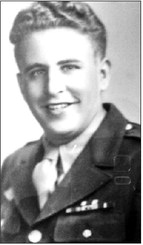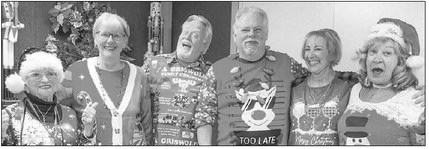Letters Home Every Day


Morton H. Goldberg Mutual 14
Morton Goldberg, 96, of Mutual 14 joined the Army at 19, serving in the 364th Station Hospital under the Sixth Army in the Pacific Theater.
He was born and raised in Pittsburg, Pennsylvania, and was 18 when Pearl Harbor was attacked on Dec. 7, 1941. After the United States entered World War II, the new Selective Service Act made men between 18-45 liable for military service. It required men between 18-65 to register. From 1940-1947, over 10 million men were conscripted.
On March 22, 1943, Mort got his induction notice. The U.S. Army gave him seven days to get his affairs in order and report. He would be gone for almost three years. Because of Army secrecy, his family never knew where he was.
“I was working for Westinghouse. They told me my job would be there upon my return,” he said. “Most of my friends had not gone into the service yet. My family took me to the train station. My mother and grandfather did not realize I would be gone for almost three years.”
Cpl. Morton H. Goldberg drove an ambulance and worked in hospital wards in the medical corps in the Pacific Theater. He trained from March-July 1943, when he left Camp Stoneman, California, for the jungles of New Guinea. He served at the 364th Station Hospital under the Sixth Army tending wounded sent back from the front lines.
The war ended in September 1945, and Cpl. Goldberg and his squad sailed aboard the USS Hope to Japan, where he was stationed at a Kyota hospital. After two months, orders sent him homeward on the USS Freestone. The ship docked at Fort Lewis, Seattle, and Mort took a train to Camp Atterbury, Indiana, where he got his discharge papers and headed home to Pittsburgh, Pennsylvania.
“I wrote a letter to my mother every day, except when I was on the ship,” said Mort. “And she wrote to me every day. I saved all of her letters and brought them home in my barracks bag. I did not know that she saved all my letters, too, and now I have all of our correspondence, our story of the war.”
At Camp Robinson, Little Rock, Arkansas, the Army trained him to crawl under barbwire while soldiers shot over them, to climb over walls and to march, lots of marching.
He also trained as a medic— medical surgical assistance,


